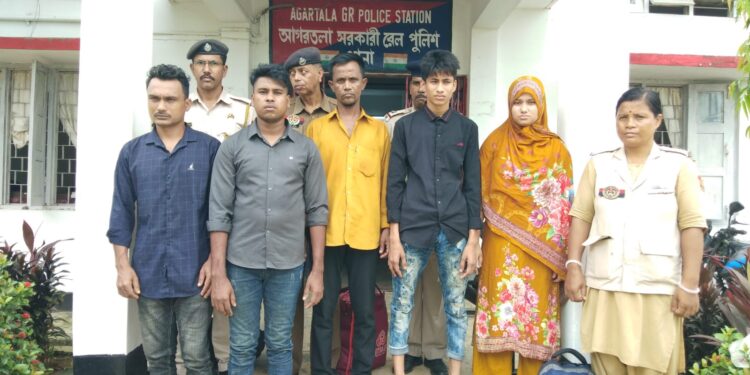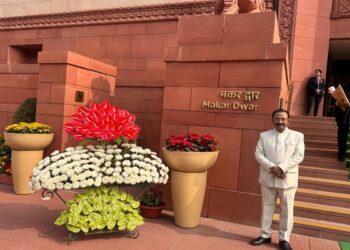Agartala, September 29: In a significant operation, five individuals, including four Rohingyas and one Bangladeshi national were arrested at the Agartala railway station by the Government Railway Police (GRP), in coordination with the Railway Protection Force (RPF). The operation was carried out based on a confidential tip-off, according to a senior GRP official who spoke on Sunday.
Inspector Tapas Das, Officer-in-Charge of Agartala Railway Station, revealed that the arrests were made following a coordinated surveillance effort by GRP and RPF.
Jointly they detained the suspects last evening after receiving intelligence and during interrogation, it was confirmed that they are foreigners who entered India illegally from Bangladesh without any valid documents.
Inspector Das said that the detainees were identified as Amir Hakim, Yasmin Akhtar, Md Tarek, and Mahamad Ulla, all Rohingya refugees from the Cox’s Bazar refugee camp in Bangladesh. Another individual, Sukur Ali, a Bangladeshi national from Comilla, was also arrested.
According to initial investigations, the group had entered India illegally from Bangladesh and was attempting to reach major Indian cities such as Hyderabad, Ahmedabad, and Chennai.
Inspector Das added that the individuals are now facing legal action for their illegal entry into Indian territory. A case has been registered against them at the Agartala GRP station under multiple laws, including the BNS Act, IPP Act, and the Foreigners Act.
“The detainees will be presented in court today for further legal proceedings,” Das noted.
He also emphasized the GRP’s ongoing commitment to curb illegal immigration and human trafficking in the region, stating that this successful operation was part of their broader vigilance and action against such activities.
With Agartala located close to the Bangladesh border, incidents of illegal immigration and human trafficking through this route have become a concern for authorities, prompting enhanced security measures.
The GRP, along with the RPF, has been intensifying surveillance operations at key transport hubs in an effort to prevent such cases.
This incident underscores the challenges faced by Indian authorities in managing illegal crossings, particularly involving vulnerable groups such as Rohingya refugees who have been displaced by conflict and persecution in Myanmar.
The Rohingyas have often used Bangladesh as a transit country to reach other destinations, including India, where many seek better living conditions and safety.
The apprehension of these individuals also raises questions about the broader regional migration dynamics and the humanitarian crisis affecting Rohingya refugees in Southeast Asia.
Local authorities have reaffirmed their commitment to strengthening border controls and cracking down on illegal immigration routes to ensure security and compliance with immigration laws.








































